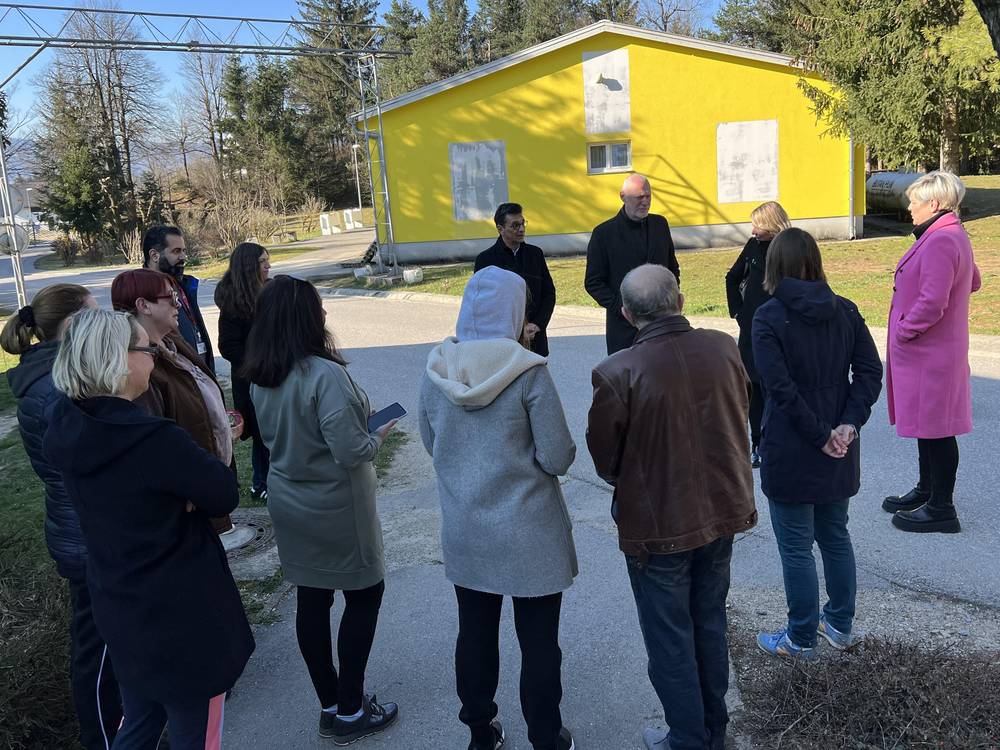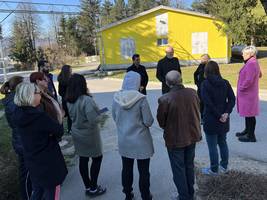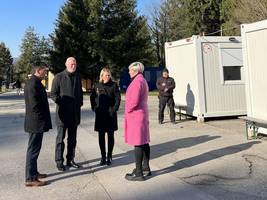On 6 April 2023, Human Rights Ombudsman Peter Svetina together with the European Parliament member Dr Milan Brglez visited the accommodation centre of the Government Office for the Support and Integration of Migrants (UOIM) in Logatec. The purpose of the visit was to inspect the centre and living conditions and to talk to the management of the UOIM about the challenges they face in their work.
During the visit, Ombudsman Svetina highlighted the recent recommendations that the institution of the Ombudsman gave to the UOIM upon the last unannounced visit to the centre in Logatec in September last year. At that time, the Ombudsman concluded, based on the visit and other information obtained, that, when a large number of people are housed in them, the conditions of accommodation in living containers do not meet the minimum standards defined in the Guidelines of the European Asylum Support Office (EASO) based on EU directives on admission conditions. “It is the state's obligation to ensure adequate reception conditions for seekers of international protection by providing them with an adequate standard of living and guaranteeing their existence and protecting their physical and mental health. However, on the basis of our inspection of the living containers and the conditions of the accommodation, we found controversial deficiencies, especially from the point of view of the right to personal dignity and the right to privacy, which derive from Articles 34 and 35 of the Constitution of the Republic of Slovenia. Since we have concluded that the above is due to insufficient capacities of the centre, we have proposed that the state provide adequate additional spatial resources for the accommodation of people seeking protection as soon as possible, thus eliminating the use of living containers,” stated Ombudsman Svetina.
Member of the European Parliament Dr Milan Brglez pointed out that from the point of view of the Constitution of the Republic of Slovenia and international legal commitments, it is very important for Slovenia to take appropriate care of all those who apply for international protection in Slovenia. He also emphasised that there should be no differences between the applicants, as the laws and the constitution are the same for all applicants. He thanked the management of the UOIM for their work and highlighted the importance of not only providing protection, but also enabling integration, which, in his opinion, is the path to the solidary and tolerant society we all want.



![[Translate to English:] Zabojniki v Azilnem domu Logatec, v katerih živijo begunci [Translate to English:] Zabojniki v Azilnem domu Logatec, v katerih živijo begunci](/fileadmin/_processed_/b/d/csm_Zabojniki_v_Azilnem_domu_Logatec_73be01a268.jpg)